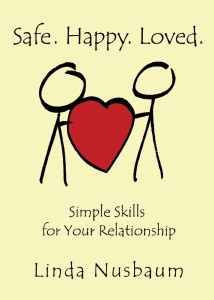Our Pattern for Managing Anger and Other Emotions Starts Young
All of us get mad over things. Some of us keep our mad inside our bodies and don’t say anything even when we get upset. The rest of us just release the anger—usually on others.
Being the angry one and sharing it is the way I am wired. I have been getting mad since I was a toddler. I wish I had a different experience of having this feeling, but I do not. I grew up with this feeling and I learned also that yelling, stomping my feet, or just being ornery created attention for me, and that was better than being left alone. I guess you could say I learned to get taken care of when I got angry.
Our Childhood Anger May Not Serve Us As Well Later in Life

Later on in life, when I looked after myself, I often used my anger when things didn’t go my way or made me mad. Only now living in the adult world some people, not my family, would look at me and wonder what was wrong with me.
I started to make some messes every time I got upset. I kept making messes and then I had to go and attempt to clean them up. I had to apologize and try and make things right. But you and I know things are never quite right after you take someone’s head off.
It’s Hard to Stop Lashing Out in Anger After a Lifetime of Learned Behavior
So, if you live with anger and you have a hard time when you express it, I feel for you. In fact, I was you, so I understand. Overcoming anger is hard. It’s nearly impossible to stop being mad, yelling, or making a big statement if you’ve been doing it all your life. I know this too.
I also know that if you get mad, you were probably not listened to a lot when you were young. Sometimes when our caregivers are overwhelmed they are not available. When we are young if we need them and they can’t attend us we do what comes naturally. We use our voice. We cry, we get loud, we get mad.
If this describes your home then your anger habits go way, way back. Just good to know where they came from because if they came from a long time ago then it might make some sense as to why you can’t stop the anger you might be feeling now as an adult.
The Path Out of Anger Starts From Within

I invite you to take a healing journey through your inner pain— the pain that got shielded by your anger. If we get hurt (maybe as you did while young) then it would be only natural for you to shield yourself against oncoming pain. Barking away anything that might hurt you is a way of doing this. So, give yourself a big thank you for protecting your precious heart with your fierce response.
Now thank yourself for the good protection and try and lay down those walls around your heart because you know now you are safe. That’s the first step to controlling anger in your relationship and your life at large.
This is your journey. Notice when your anger gets the best of you. Tell yourself you are OK. Do this again and again. It works. It works.
Need Help with Anger in Your Relationship?
Read a Book About Relationships
If you’re still struggling with anger and lashing out, try reading Linda’s book Safe. Happy. Loved. Simple Skills for Your Relationship. It just might help you change the way you communicate and help certain feelings flare up less often, both teaching you how to better cope with anger while simultaneously leaving you with less of it to struggle with. Give it a read.
Get Couples Counseling
Come in for couples counseling. Couples counseling can help you and your loved one get the most out of your relationship. It'll equip you with coping strategies and tools for communication that can help you argue less and love more.


